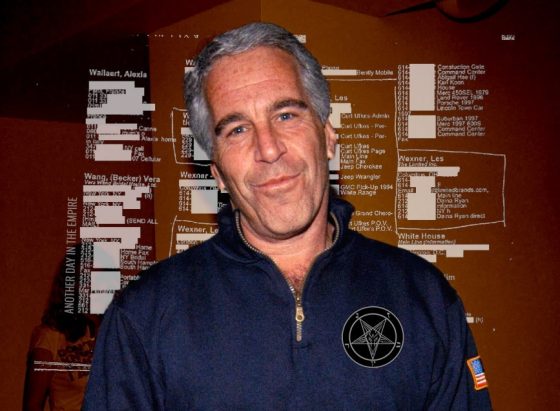This article was originally published by Caitlin Johnstone at CaitlinJohnson.com.
ATTENTION JOURNALISTS:
It is never, ever acceptable, under any circumstances, to cite think tanks funded by governments and the military-industrial complex as sources of information or expertise on matters of national security or foreign affairs.
If you do cite them (and, again, don’t), then at the very least you need to disclose the conflict of interest their funding causes in your reporting, and you need to make it abundantly clear to your audience that it is a conflict of interest.
This happens every single day in the western media, but just as an example take the way the independent Australian publication Crikey has shamefully published a bogus propaganda piece about the Chinese government persecuting LGBT people, with their sole source being the empire-funded Australian Strategic Policy Institute.
#Crikey sets its sights on “human rights abuse” of China’s LGBTQI+ community relying on a single source for its investigation – the Australian Strategic Policy Institute. Crikey!#auspol #rainbowalerthttps://t.co/3gWeYqBAnx
— CO-WEST-PRO (@cowestpro) March 18, 2023
As soon as you do this, you’re guilty of journalistic malpractice. As soon as you find yourself writing anything like “According to my source from the Australian Strategic Policy Institute,” you have ceased to function as a journalist and are now functioning as a propagandist. It’s insane that this extremely obvious fact isn’t better understood.
You all get that you can’t cite unverifiable claims by outlets like RT or Sputnik unless it’s for official statements from the Russian government, but for some reason, you’ve been told that it’s okay to cite think tanks that are paid by western governments and arms manufacturers in your reporting. It isn’t, and it never has been. It has always been a brazen violation of journalistic ethics, and if you give it a moment of intellectually honest thought, you will know this to be true.
❖
Australians need to stop talking about AUKUS as a “defense partnership”. It’s got nothing to do with “defense”. You don’t need long-range submarines to defend Australia’s easily-defended shores, you need long-range submarines to attack China. Anyone who doubts this hasn’t been paying attention.
Former Prime Minister Paul Keating explained what this is probably really about the other day, saying it’s about taking out China’s nuclear-armed submarines to cripple their “second strike capability”, i.e. to allow the US to win a nuclear war with China.
It’s not a defense partnership because it’s got nothing to do with defense, and it’s not a defense partnership because it is not a “partnership”. It’s the US empire driving Australia to its doom, to nobody’s benefit but the US empire.
Either it’s about attacking China, or it’s about protecting our trade with China from China. Which makes more sense to you?
Front page of the Sunday Age accidentally does the meme. According to war secretary Marles, Australia is spending hundreds of billions of dollars to protect our trade with China… from China. pic.twitter.com/d2t4n3VHv0
— Caitlin Johnstone (@caitoz) March 19, 2023
One of the biggest obstacles to building a robust anti-war movement is people’s belief that their own individual activism and opposition make no difference, which is simply not true. Your individual activism and opposition make ALMOST no difference, not no difference. These might sound similar, but they’re actually literally an entire infinity apart.
If your efforts to oppose our trajectory toward World War Three made no difference, then those efforts would be pointless. But if your efforts make even the slightest bit of difference above absolute zero, all that means is a lot more people need to join you to help turn us away from this dangerous trajectory.
Hollywood has given us the wrong impression of how these things work because the narrative structure of movies always places all its emphasis on the actions of the individual protagonist having an immensely consequential effect. Luke Skywalker blows up the Death Star. Frodo destroys the One Ring. The Avengers save the universe. The storyteller needs to make the hero’s actions have major consequences to get you to care about their adventure, and thus get you to care about the story they’re telling you.
Melbourne turning out to say "NO" to AUKUS, to war, to militarism, and to the persecution of Julian Assange. #auspol pic.twitter.com/rRsQdLzWpM
— Caitlin Johnstone (@caitoz) March 18, 2023
But real life isn’t like that. In real life, it takes many, many people to bring about real change. The actions of one individual make very little difference; even people like me who have larger-than-average voices are just a tiny drop in the bucket in the grand scheme of things.
Real change doesn’t depend on the individual, it depends on the collective. We can see this just by looking around society, at what a massive billions-of-cast-members collective improvisation human civilization is. It takes the collective to keep civilization functioning, and it will take the collective to change it.
One bee sting won’t protect the hive, but many bee stings are deadly. The bee doesn’t hesitate because it’s one individual sting isn’t going to bring about its Hollywood ending — it just stings.
We need to be like that. Sting with all the power of your one sting, whatever that may be. Organizing. Attending protests. Guerrilla street activism. Writing. Tweeting. Making memes. Distributing literature. Talking to people. Making videos. Whatever you can do to help wake up the rest of the bees and alert them to the threat that our collective hive has come under.
You won’t stop the empire by yourself. You won’t make a major difference. But you will make a difference. And there’s nothing anyone can do to stop you from making that small difference that you can make.










0 Comments